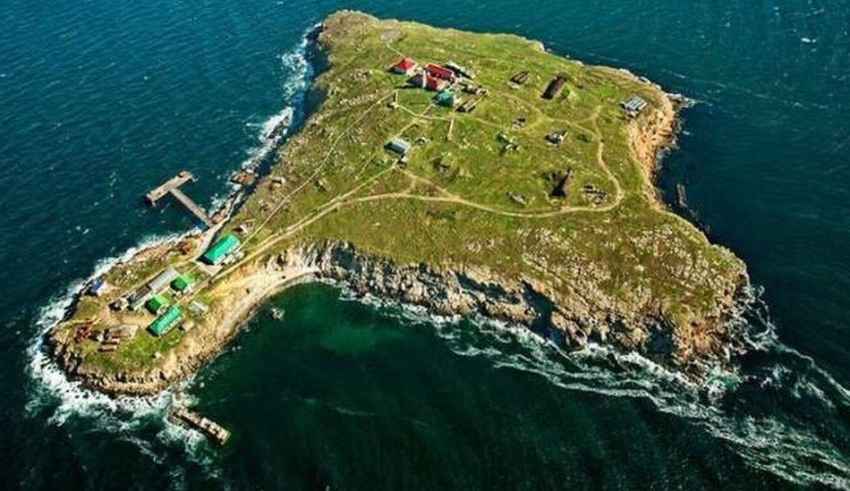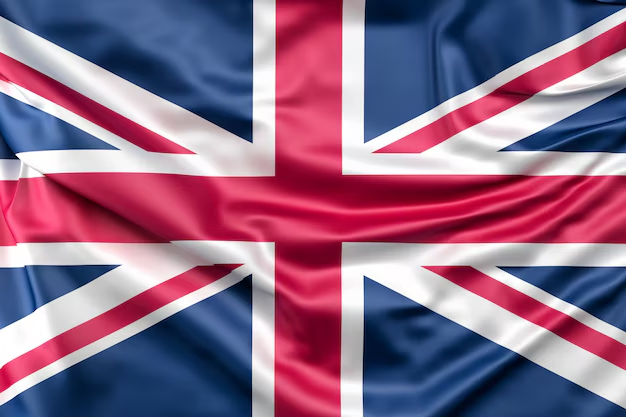
Snake Island is the only real island in the Black Sea, the subject of Greek tales, and the site of a dispute between Romania and Ukraine for natural resources. The sea and fresh water, land and vegetation, gold and oil are all available there. The massive pier, built in the Soviet Union, is capable of accommodating a rather large vessel. The island’s strategic location is excellent in terms of the monitoring station and the placement, for instance, of an air defense system. The Soviet authorities apparently agreed, stationing an air defense radar as well as a radio engineering unit of the USSR Navy’s coastal surveillance system, on the island in 1956. However, these systems were never utilized (at least, no record of that was preserved) until the Snake Island became part of Ukraine. The legal struggle for the demarcation of territorial seas began then: the reason was the desire to control the oil and gas, and the rationale was Romania’s historical right to the island, acknowledged by the Russian Empire after the Crimean War defeat. The UN court resolved the case in 2009 by dividing the maritime border. The Court ascribed a 12-mile radius around the island to Ukraine while yielding the majority of the shelf to Romania – over 80% of the contested regions. According to the experts, that amounts to 12 million tons of oil and 70 billion cubic meters of gas.
On February 24th, 2022, only hours after launching a full-scale Russian invasion of Ukraine, the Russian flagship “Moskva” reached Snake Island and requested the Ukrainian forces to surrender. On the same day, Russians occupied the island. Just several months later, on June 30th, after series of battles, Russian forces fled the island following powerful attacks by Ukraine’s Armed Forces. The South’s operational leadership reported that artillery units continued to fire at the island throughout the night, following which Russians quickly evacuated the remaining troops on two speedboats. The Russian Federation’s Ministry of Defense acknowledged the departure from Snake Island, calling it an “act of good will.” That statement was refuted and ridiculed in the Office of the President of Ukraine.
In the context of the Russo-Ukrainian war, the Snake Island is strategically important for both Ukraine and Russia. The island is of upmost importance in terms of controlling the northwestern part of the Black Sea. If Russian troops managed to retain control of the island, occupy and deploy their long-range air defense systems there, then they would control the sea, land and air in the northwestern part of the Black Sea and in southern Ukraine. Snake Island was essential for Russians to continue the blockade and enhance their air defense in the Black Sea, which, as the demise of the cruiser “Moskva” demonstrated, was ineffective. They intended to utilize the island as a “trampoline” for an attack on Odessa in the future, as well as to station Bastion missile systems with P-800 Onyx missiles on the island, giving Ukrainian air defense less time to react. Furthermore, the island might provide a chance for Russia to launch a tactical naval attack on the region of occupied Transnistria. Because of the Snake Island’s proximity to Odessa, it is commonly referred to as the port’s gateway. Essentially, the side that controls the island, can, at any time, block the passage of civil vessels in all directions to Ukraine’s south. As a result, Snake Island could be critical in averting a global food crisis, considering that Ukraine used to export around 4.5 million tons of grain through Odessa every month.
Russia’s expectations held steady until Ukraine began to obtain long-range high-precision multiple launch rocket systems and gun artillery. Snake Island is approximately 40 kilometers away from the nearest Ukrainian territory. At the time of the outbreak of warfare, the Armed Forces of Ukraine possessed essentially no high-precision weaponry capable of reaching the island with the exception of the Smerch MLRS with its low accuracy and few Tochka-U tactical missiles. However, in May 2022, the Ukrainian army obtained numerous types of weaponry, which could easily reach the island and strike frequently and accurately enough to make the Russian military’s presence on the island unpleasant.
On the other hand, Kremlin claims a completely different narrative. Russia shielded itself from Kyiv’s provocations by leaving the Snake Island. That was a political choice rather than a strategic one. That could have been a statement to the international community that agricultural goods may be securely exported against the backdrop of a clear overall victory in the liberation of Donbass. Ukraine has a history of provocations ranging from Bucha to the current scenario in Kremenchug. Therefore, if difficulties emerge, it will be difficult to blame Russia for them. Russia also stated that in order to restore grain shipments, the Ukrainian side must clear the Black Sea coast, including port waters. President Vladimir Putin emphasized that Russia does not prevent the shipment of grain from Ukraine, and that if Kyiv clears the mining ports, ships carrying grain would be allowed to depart without interruption. Is that really the case? It depends which narrative one chooses to believe.
References
Williams, S., & Paul, K. (2022, May 11). Ukraine War: Snake Island and battle for control in Black Sea. BBC News. Retrieved June 30, 2022, from https://www.bbc.com/news/world-europe-61406808
Feng, E. (2022, June 30). Ukraine wins back control over Snake Island. NPR. Retrieved June 30, 2022, from https://www.npr.org/2022/06/30/1108855805/russia-withdraws-snake-island-ukraine
Voitovych, O., Chernova, A., & Lister, T. (2022, June 30). Russian forces have withdrawn from Snake Island. but both sides give different accounts. CNN. Retrieved June 30, 2022, from https://www.cnn.com/2022/06/30/europe/snake-island-russia-ukraine-invasion-intl/index.html
By The European Institute for International Law and International Relations.














